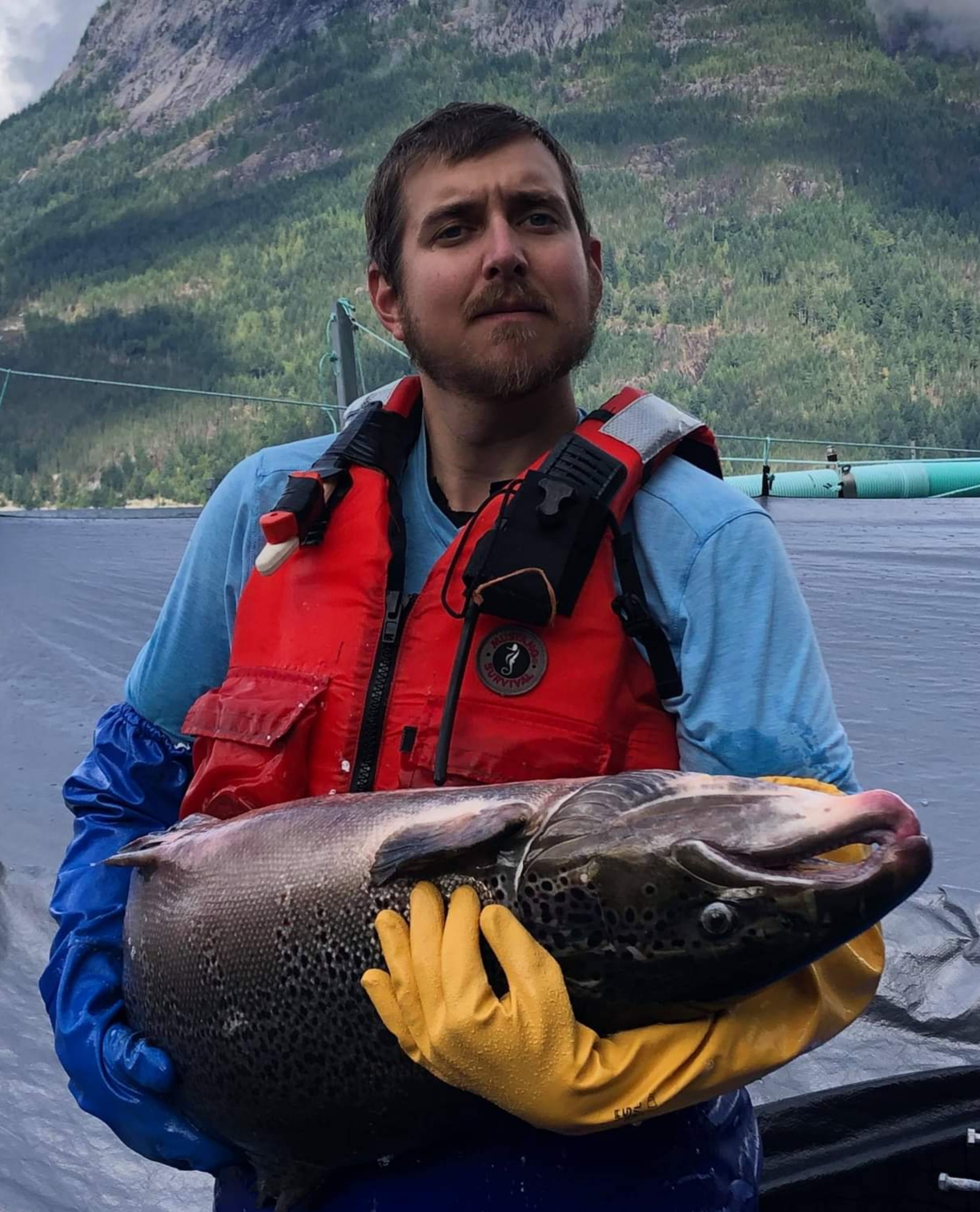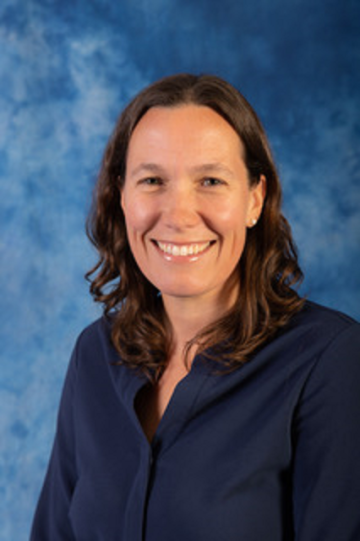Jordan Joseph Frizzley (he/him)

Jordan Frizzley holding a huge salmon.

Jordan Frizzley holding a huge salmon.
About me
I was born/grew up in: I was born in Campbell River, BC. I moved to Fort McMurray, AB where I completed high school.
I now live in: Comox Valley, BC
I completed my training/education at: Diploma in Environmental Technology, Keyano College
Bachelor of Science (Environmental Science), University of Northern British Columbia
What I do at work
Currently I am working at a brood-site. Here we are creating the next generation of salmon to be farmed. My regular duties include handling of fish, monitoring their living conditions, and feeding programs. We keep track of the different genetic lines of the fish we farm. We sort them by families in our breeding program. We use this information to select fish for breeding so the best characteristics are developed. It also prevents inbreeding of stock. When fish are at reproductive age, we harvest the milt and eggs. These are sent off to the hatchery for fertilization and the cycle continues.
We monitor the oxygen and temperature levels of the water to make sure it meets the fish’s needs. One of the things we monitor is the amount and types of plankton in the water. There are many different types of plankton. Some plankton can harm fish so we need to ready respond if any plankton present is a risk.
STEM knowledge is important for working in aquaculture. Knowing the reasons why you do different things as you grow fish is better than just doing them. For example, having an understanding of the effects of oxygen and temperature levels on living things helps you understand how important it is to monitor this. Understanding fish health and the biology of fish in general is very helpful in this job. My background in environmental science gives me a better understanding of the ocean and how to grow fish in a sustainable way. We use chemistry and biology ever day as we monitor the water quality.
Problem solving is a big part of what we do. Our farm is located in a remote area so dropping by the store to pick up something is not possible. You need to plan ahead when you are working in a place like this. If something goes wrong, you have to be able to figure out what is causing it and fix it with what you have on hand.
My career path is
I did not plan on working in the aquaculture industry when I was in high school. However, now that I look at it, it is a natural fit for me. I grew up in Campbell River on Vancouver Island, close to the sea. As a kid, I loved being on the beach, in or on the ocean. I loved marine life, especially fish. Fish have always been a passion of mine. I’m not sure if I ever really set out to work in aquaculture but I always knew I wanted to work in something related to environment science.
Growing up in Campbell River, salmon was (and is) a big part of the culture. Fishing, harvesting and eating salmon is a big part of life there. As it is in all of BC! Over the years though, we have seen the wild salmon stock dwindle away. Aquaculture is a way to move forward in a much more sustainable manner. Farming salmon is helping to keep the culture of salmon alive in British Columbia.
I find working in aquaculture very satisfying. However, there are some challenges associated with working in the aquaculture industry. Most of these revolve around the negative perception and misinformation that some people have about the industry. A lot of people don’t realize how much salmon farming has evolved since it first started decades ago. Today’s aquaculture initiatives follow very strict regulations to protect both the environment and consumers.
I am motivated by
I love that I get to work in beautiful locations! I love it when I get to be out on the ocean. Each day I get to experience the natural environment. I see marine mammals and seabirds every day!
How I affect peoples’ lives
Aquaculture is helping us change the way we interact with the ocean by changing how we harvest and produce food from it. The way we have used the ocean is not sustainable. We have treated it as a limitless supply of food but that is not true; the ocean’s resources are not unlimited. We have fished some species close to extinction. Populations of both Pacific and Atlantic salmon are much lower than they were in the past, due in part to overfishing. Aquaculture is a new way to produce food from the ocean. It is changing the way we interact with the ocean globally. It also helps increase food security. For me personally, helping put food on peoples’ plates is rewarding!
Outside of work I
I like to go kayaking and explore the lakes and coast in this region. I also volunteer with a wild salmon enhancement program. This program is working to increase the population of wild Pacific salmon.
It’s great that I get to bring knowledge from my profession to help the volunteer efforts.
My advice to others
Just get in and try it! The only way to know if you will like this type of work is to give it a try and see if you enjoy it. There are many entry points to get exposure to the aquaculture industry. For example, seek out a summer work position. Check for opportunities to volunteer in local fish enhancement projects in your area. There are also many other career paths in aquaculture besides working on farm sites. There are business management, marketing, finance, and research roles to name a few. Take a look… you may find something that interests you!
- Foods and Nutrition
- Physical Education/Health
- Science
- Technology
- Enjoyed doing things on my own
- Always wanted to be outside
- Engaged in volunteer activities
- Liked being given specific instructions
- Liked reading
- Felt at home in the outside, natural environment
- Felt great satisfaction in getting good grades
Related Topics
Partners
Let's Talk Science would like to thank the Canadian Aquaculture Industry Alliance (CAIA) for connecting us with the individual profiled above.
The Canadian Aquaculture Industry Alliance (CAIA) is the national association that speaks for Canada’s seafood farmers, representing their interests in Ottawa to regulators, policy makers and political leaders. Check their website to learn about the Aquaculture Industry in Canada, how this industry contributes to the production of a sustainable food supply, and the benefits of a seafood diet.






